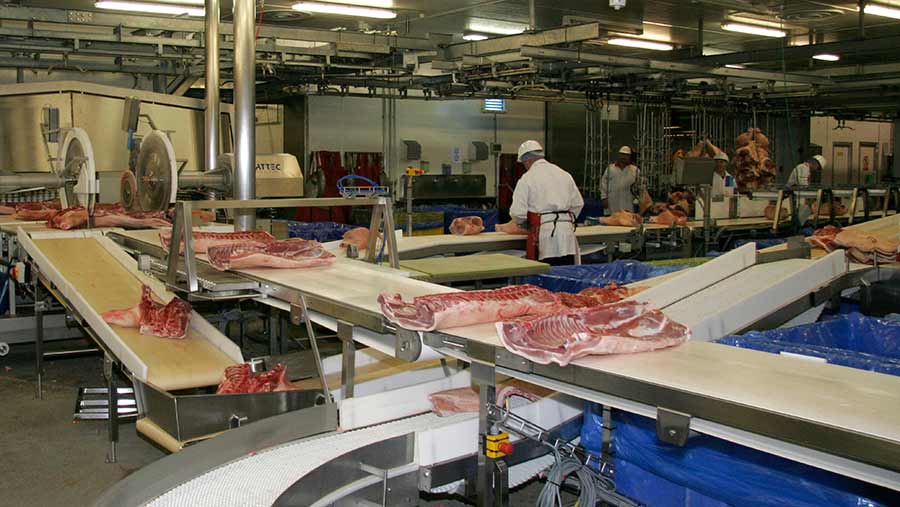Meat processors still struggling with staff shortages
 © Tim Scrivener
© Tim Scrivener Staff shortages in the food supply chain could lead to issues for processors this autumn as trade volumes ramp back up after a quieter summer.
Access to labour, visa costs to bring in overseas workers, and rising staffing costs are all building up for the sector, according to the British Meat Processors Association (BMPA).
See also: Penalties for employing illegal workers to triple in 2024
BMPA chief executive Nick Allen told Farmers Weekly that labour shortages had not been quite as severe during the summer months, with fewer cattle around and demand down slightly.
However, as it got busier in the autumn, processors would come under pressure again.
“Come September time, you’ll start to see the UK lamb kill peaking and when the schools go back, demand for beef and pork picks up,” he said.
“We’ll be back to struggling again, with most processors saying they are below where they want to be staffing-wise.
“When things get busier towards Christmas, it will become even harder. There are still underlying issues and we haven’t got enough labour.”
Visa costs
Processors continue to rely on skilled overseas workers to fill vacancies, but this comes at an ever-increasing cost for businesses.
Mr Allen said: “The biggest complaint from processors is the cost of the visa system.
“They are still having to bring in butchers from abroad, and it can cost between £10,000 and £12,000 to source a butcher from the Philippines.”
Labour market report
Limited availability of labour and rising staffing costs are creating issues for businesses more generally, according to the Chartered Institute of Personnel and Development (CIPD).
The CIPD’s latest quarterly labour market outlook surveyed 2,000 employees and found that 44% of companies are expecting to have hard-to-fill vacancies in the next six months.
It also found that 27% of employers expect significant problems filling vacancies, and a further 36% expect minor problems.
CIPD labour market economist James Cockett said: “The National Living Wage rose by a record 9.7% in April 2023.
“This move was to bolster the wages and living standards of low-paid workers. As a result, one in five employers believe their wage bill has been affected to a large extent.”
